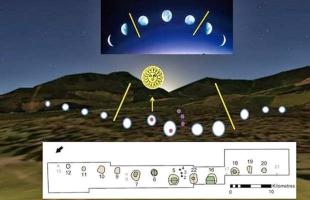Copy Link
Add to Bookmark
Report
Cider Digest #0869

Subject: Cider Digest #869, 21 July 2000
From: cider-request@talisman.com
Cider Digest #869 21 July 2000
Forum for Discussion of Cider Issues
Dick Dunn, Digest Janitor
Contents:
Cider from Store Bought Juice ("Sean Dawe")
Re: Cider Shelf Life (Greg Troxel)
Strongbow Cider ("Poirier, Bob")
Apple juice changes in storage (Tim Bray)
Cider won't clear? (ed@parksplace.com)
A Sweet Cider Recipe w/ Splenda (Warren Place)
Yeast vs. My Lower GI ("Spence")
Send ONLY articles for the digest to cider@talisman.com.
Use cider-request@talisman.com for subscribe/unsubscribe/admin requests.
When subscribing, please include your name and a good address in the
message body unless you're sure your mailer generates them.
Archives of the Digest are available for anonymous FTP at
ftp://ftp.stanford.edu/pub/clubs/homebrew/cider.
----------------------------------------------------------------------
Subject: Cider from Store Bought Juice
From: "Sean Dawe" <seand@mail.gov.nf.ca>
Date: Tue, 11 Jul 2000 09:10:01 -0230
I have been making cider from Motts 100% apple juice (not from concentrate)
and it is turning out pretty good - or at least by my standards. I
simply fill a 5 gal carboy, add a bit of sugar to bring the SPG up to
around 1055 or so, pitch some yeast and attach an airlock. After about a
month and a racking or two, I bottle (beer bottles) with a bit of sugar. I
have tried a couple of different yeasts - both wine and ale - but I have
not yet determined which I like the best. I don't bother trying to
clarifiy the cider although I did make one batch that cleared itself quite
nicely after about three weeks in the bottle. Generally after three or
four weeks in the bottle it gets a nice fizz and the taste gets much
better.
I do not have ready access to bulk apples so this works great for me. For
very little labour (no pressing) and a mere $30.00 CDN (including yeast
and sugar) I can have 6 dozen bottles of quite palatable cider. If there
is anybody out there who would like to try making a batch of cider but is
not ready for the bigger committment of using fresh apples, I would
suggest using store bought apple juice. This may not jive with the die
hard cider makers but for some of us, it may be the only viable option.
Cheers,
Sean
St. John's, NF
------------------------------
Subject: Re: Cider Shelf Life
From: Greg Troxel <gdt@work.lexort.com>
Date: Tue, 11 Jul 2000 08:19:27 -0400 (EDT)
When people are talking about cider shelf life, do they mean just
cider, with an OG of 1040-1055ish? Or are things like cyser included?
I made several batches from the 1994 apple crop (Paul Correnty/Boston
Wort Processors custom blend - unpreserved/unpasteurized). All of
these were bottled in fall of 1998 - 5 months in primary, and the next
3.5 years in secondary - all glass. One of these was fortified with
4-8 lbs of brown sugar (don't remember..), and is starting to get a
touch acetic. The other two have 8 lbs of honey and 1.5 gallons of
grade B (very dark) maple syrup, respectively, and are both currently
very tasty and showing no signs that I can detect of decline. These
are arguably meads more than cider, though. The residual sweetness is
pretty high - on the order of dessert wines.
I don't mean to recommend 3.5 years in secondary - I left gradual
school and got a job, which put a real kind in brewing/cidermaking.
But it seems to have been ok this time, perhaps due to the high
gravity.
The honey and maple batches were made by taking 1 gallon of cider,
mixing with the adjuncts, and bringing it to just about boiling and
holding for about 20 minutes. Then I covered the pot and let it cool,
and mixed it into the fermenter. All of the cider came in 1-gal milk
jugs, and I just let it start to ferment by itself, venting excess CO2
daily. I started the process when most of them were pretty vigorous.
I tasted each bottle before pouring it in (I got extra), and all of
them had no off flavors - just the usual estery(?) early fermentation
notes. I added no yeast, using only the orchard yeast for my
fermentation. When bottling, I racked the cider off the yeast, but
did not do any kind of filtering/pasteurization/carbonation/etc. -
just siphon into a bottle and cap.
------------------------------
Subject: Strongbow Cider
From: "Poirier, Bob" <Bob_Poirier@adc.com>
Date: Wed, 12 Jul 2000 14:40:57 -0500
Greetings.
My local beverage warehouse/super-store has started carrying
Strongbow Dry Cider packaged in nitro draught-dispense cans (along
with a bunch of other brews I would never think to drink that
way: Heineken, Amstel Light?!). Should I bother with this
stuff?? I didn't take the time to read any of the propaganda
on the can - where is it from, who makes it, what's in it,
etc, etc?
Thanks,
Bob Poirier
East Haven, CT
------------------------------
Subject: Apple juice changes in storage
From: Tim Bray <tbray@mcn.org>
Date: Sat, 15 Jul 2000 21:12:40 -0700
OK. so last fall I pressed out about 15 gallons of juice, tried a natural
ferment which did not happen, froze 10 gallons of it and pitched yeast into
5 gallons. Today's question concerns some of the frozen juice. I recently
took out a gallon and thawed it in the sink - just as I was leaving town
for a few days. There in the sink it sat, probably warming up to 75
degrees F or so, for two weeks. When I opened it up, there was a small
hiss of escaping pressure; Aha! says I, fermentation has begun! But if so,
it's pretty weak - no fizz, no real taste of yeast. Yet the cider is
noticeably sweeter than other jugs of the same stuff have been.
What might be happening in there? Is it possible to get a malo-lactic
fermentation, even if there has been no primary yeast fermentation? Could
that be what is happening in this case?
Some additional specifics: Juice was from Yellow Bellflower apples from a
tree about 100 years old; equipment was new and sterilized just before
pressing. The only organisms present would be those on or in the apples,
which were washed but not sanitized before pressing. SG about 1.045, pH
about 3.6 when first pressed (haven't checked recently). The Bellflower
juice had a pretty good acid balance when fresh; this stuff seems just as
good but somewhat mellower, as if the acidity is toned down a bit.
Comments?
Tim Bray
Albion, CA
------------------------------
Subject: Cider won't clear?
From: ed@parksplace.com
Date: Sun, 16 Jul 2000 15:15:24 -0700
I am brand new at this art; started because I bought a home with a few apple
trees (don't even know what varieties they are) in the back yard and got
tired of having the apples go to waste. I made one 6 gallon batch from
apples I picked last July and over a period of several months, it cleared
very nicely. I put up another batch from a friend's apple tree in September
(about 20 gallons this time). After primary fermentation in a large plastic
drum, I racked it off into 6-gallon glass carboys and put them under
airlock. To date none of them have cleared. Is the batch bad or is there
something I can do?
Ed Parks
Nipomo, California
------------------------------
Subject: A Sweet Cider Recipe w/ Splenda
From: Warren Place <wrplace@ucdavis.edu>
Date: Mon, 17 Jul 2000 10:45:04 -0700 (PDT)
Cider fans,
I'm finally getting around to posting the results of a test batch
of cider I sweetened with Splenda (trademark for sucralose). I'm so happy
that I found a way to make sweet, sparkling cider without kegging or the
hassle of pasteurization that I had to share it. The recipe is simple:
1 gallon pasteurized, filtered cider (cheapest stuff in the store)
8 oz slurry of Wyeast 3766 (cider strain) from previous cider
Ferment to dryness, racking at appropriate times. To the bottling bucket
add sweetener/priming solution:
1 pint water
1/4 cup priming sugar (a lot of carbonation, like Champange)
1/2 cup Splenda
I make up this solution and can it with my pressure cooker, several at a
time. That way it is cooled and ready to go when I bottle. (I've been
doing many test batches lately; experimenting with different fruits and
spices) Also, the maltodextrin that Splenda is packaged with doesn't
dissolve very well. The high temp of the pressure cooker seems to help.
I've had several batches like this and they have been around for a
while, some almost a year. I haven't had any bottles explode and the
cider remains sweet after storage. This isn't the case with
aspartame. The main reason I posted this is that when I started making
cider, the only kind I liked was the sweet stuff (my tastes have moved
toward much drier ciders recently) and I was frustrated by the hassle
whichI had to go through to make it. I had to sorbate & sulfate, follwed
by force carbonation to get sweet sparkling cider. Now, I can get this
with little more hassle than a dry cider (you don't need to do the
pressure cooker route that I have chosen). Hopefully, this will be
valuable to other cider makers. It should be especially welcome by those
looking for a cider like Woodpecker, Woodchuck, Ace or Wyders.
For those unfamiliar with Splenda, it is an artificial, low-calorie
sweetener. Yeast can't ferment it and it tastes just like
sugar. Go to www.splenda.com if you want to buy some or want more
info. It is more expensive than sugar (about 4 times as much, but you
probably won't use that much if it's reserved for cider masking. It takes
about a week to ship to me.
Happy cider making,
Warren Place
------------------------------
Subject: Yeast vs. My Lower GI
From: "Spence" <drwlg@coollink.net>
Date: Wed, 19 Jul 2000 18:52:35 -0400
I have a delicate, yet no less serious inquiry to make. I am wondering if
others in our fraternity have experienced "gastrointestinal distress" from
drinking their homemade beers and wines? I think that I have conducted some
reasonable tests and hypothesize that maybe my little yeasties are setting
up camp in my gut and waging war with the natural critters that normally
occupy the territory. It appears that the yeasties are the better fighters,
and tend to win the battle. Of course, I am the one who ends up paying
reparations for the price of the war. I am sure there are some of our
bretheren out there versed in such delicate discourse. I am not merely
speaking about the "Winds of War"... but as in "opening the floodgates".
Wonder if there is any scientific reason that supports my theory? Suppose I
could use PeptoBismol as an adjunct... maybe Kayopectate... might add a
lovely pinkish patina to the must... but figure it will still be dark in the
end.
Spence
If you're not bleedin'... you're not having fun!
------------------------------
End of Cider Digest #869
*************************


























